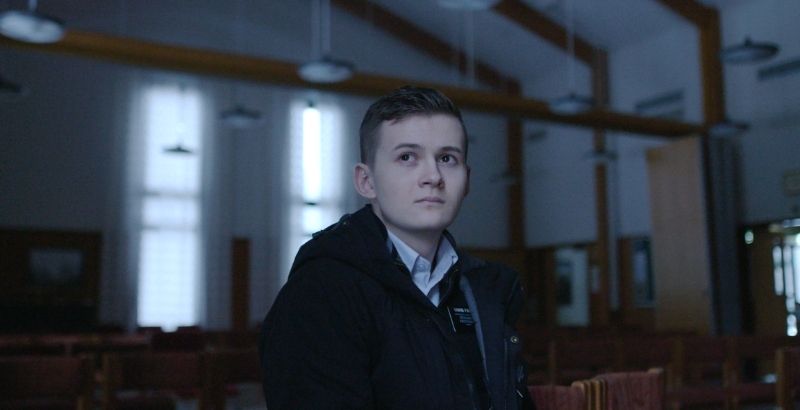
A group of young missionary Mormons gives a presentation at a school in Finland, after which one of the students asks them, “Do you feel that your life as a teenager is limited?”. We don’t hear their answer, but the question lingers throughout the rest of The Mission, a splendid vérité documentary directed by Tania Anderson that follows the Church of Jesus Christ of Latter-day Saint (LDS) missionaries tasked with bringing the word of the Book of Mormon to people in Finland.
Let’s get one thing out of the way first. If you’ve seen them, there’s no chance you’ll be able to keep Trey Parker and Matt Stone’s The Book of Mormon or the “All About Mormons” South Park episode out of your head while watching parts of The Mission, specifically when these kids try to explain the basis of their religion. However, it’s a testimony of Anderson’s powerful directing that she eventually makes you forget about said satire to make room for powerful reflections of faith and how Mormonism moves the lives of her subjects.
The film specifically follows young White American Mormon men and women embarking on their two-year missionary trip to Finland: Elder Pauole, Elder Davis, Sister Field, and Sister Bills. Sister Field stands out of the pack immediately thanks to her charming personality, and although quiet, Sister Bill’s resolute faith makes her a very interesting subject to follow.
The Mission doesn’t judge the religion and, through its observational approach, allows you to draw your own conclusions. But it doesn’t take an Apichatpong Weerasethakul fan to observe and understand the very obvious problems of these missions. Besides funding the mission from their own (or their family’s) pocket, these kids are sent to a faraway country whose language they don’t speak to face rejection after rejection (and the occasional insult) while trying to promote their faith. Furthermore, they can only speak to their families once per week and have to change partners every nine weeks approximately, which causes continuous changes in their life habits. There’s no partying or entertainment. And, after they return, they have to start looking for marriage.
Although the missionaries talk about how close they feel to their faith and highlight how positive the experience is to help them prepare for marriage, the isolation is transparent in their faces. Some of them look lost, and Elder Davis leads the charge: he has mental health issues, and the whole experience is weighing hard on him; he has to return home sooner than expected, but the entire Church comes off as irresponsible for forcing him to go in the first place.
The documentary lacks a clear explanation of the Church’s real objectives (besides converting people) by sending all these souls to Finland. And whenever someone is questioned about the foundations of the Church or about a more complex topic (such as the one I mentioned in the first line of this review), Anderson cuts and doesn’t provide answers of deeper explanations, and I don’t think she had much say in it. Although disappointing, this is completely understandable given that The Mission is the first time a non-LDS crew gets access to film a Mormon mission; in a sense, the secrecy only enhances the whole shadiness of the operation.
Despite the lack of access, The Mission is a fascinating dive into a pursuit of faith that provides valuable reflections about how such an immense experience can lead young men and women into adulthood, even when that requires sacrificing some of their finest years.
The Mission had its World Premiere at the 2022 Sundance Film Festival, where it’s competing in the World Cinema Documentary Competition.
The Mission
-
Rating - 8/108/10
TL;DR
Despite the lack of access, The Mission is a fascinating dive into a pursuit of faith that provides valuable reflections about how such an immense experience can lead young men and women into adulthood, even when that requires sacrificing some of their finest years.






